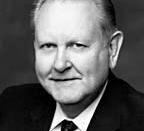Abstract
The terms groups and teams are often times used interchangeable, however, there are some differences. According to Schermerhorn, Hunt & Osborn (2005), "a group is a collection of two or more people who work with one another regularly to achieve common goals." On the contrary, they define a team as being "a small group of people with complementary skills who work actively together to achieve a common purpose for which they hold themselves collectively accountable." So, what is the difference? Accountability is the real difference. Throughout this paper, I will discuss ways in how groups can become high-performance teams. I will also examine the impact of demographic characteristics and cultural diversity on group behavior and how such diversity can contribute or detract from high-performance teams.
According to Schermerhorn, Hunt & Osborn (2005), "an effective group is one that achieves high levels of task performance, member satisfaction, team viability, and offers a potential for synergy.
Some benefits of effective groups include the ability to make better decisions, improved creativity and innovation, and ability increase commitments to action.
According to the University of Phoenix, Learning Team Toolkit (2004), "groups typically pass through a series of stages as they grow and evolve into teams". These stages include forming, storming, norming, performing and adjourning.
The first stage of group development is the forming stage. During this stage, "members are interested in getting to know each other and discovering what is considered acceptable behavior, in determining the real task of the group, and in defining group rules. (Schermerhorn, Hunt, and Osborn, 2005). A good example is when you start a new on-line class and you are assigned to your first group wherein you do not know each other. Often times, you have more concerns than anything during this stage.
The next...


